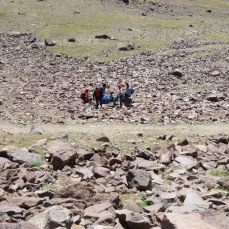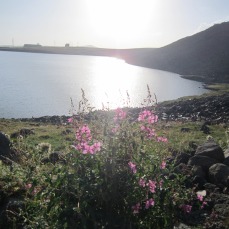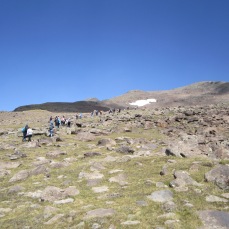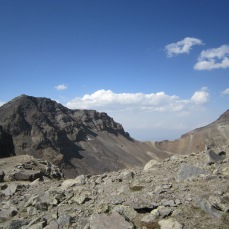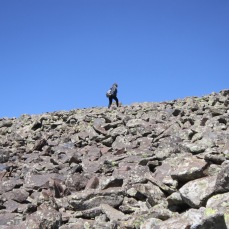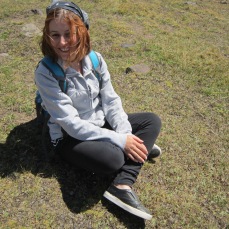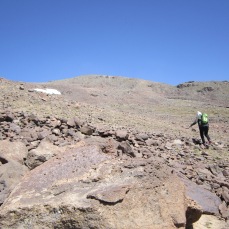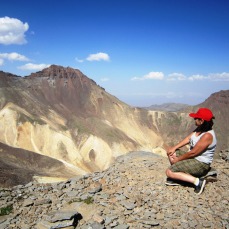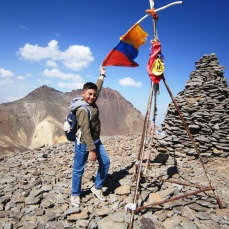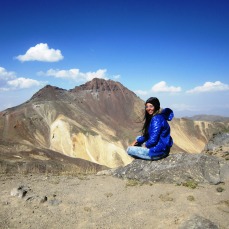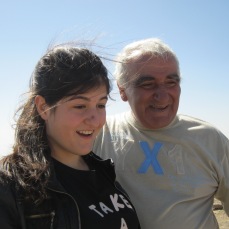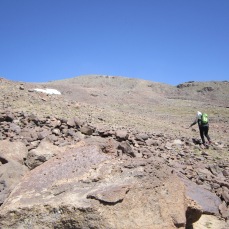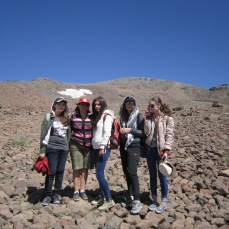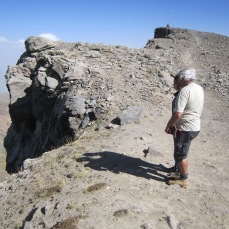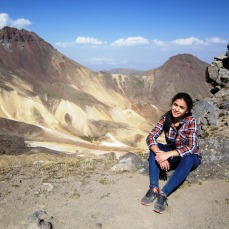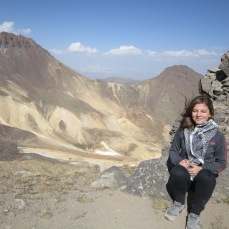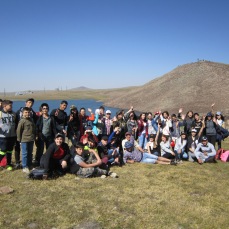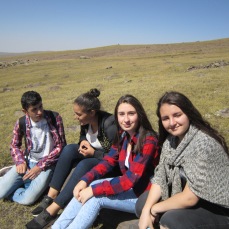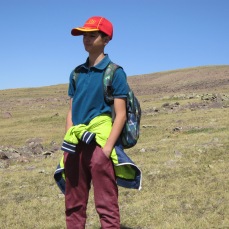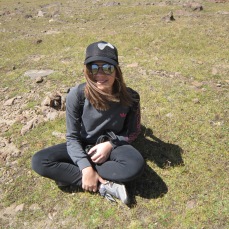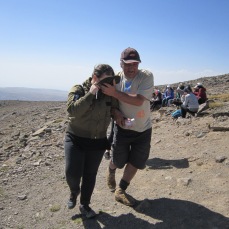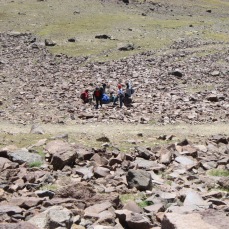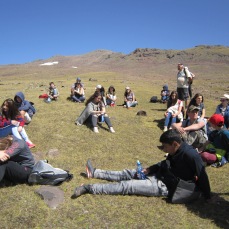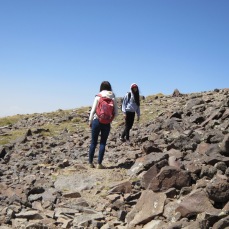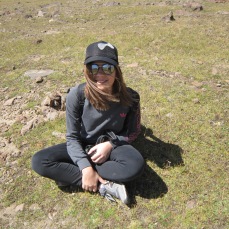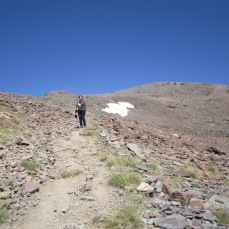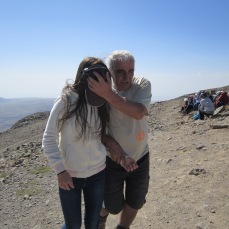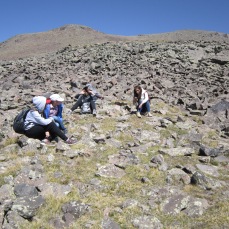It is an ascent, but should it be the only priority all the way up?
Primary tabs
It has become a wonderful tradition to baptize new Sebastatsies on top of Aragats by the crater. It was really a big group, about 50 students and 7-8 young specialists who had applied for a job at the Educomplex. We were ascending under Mr. Gevorg Hakobyan's wise leadership. It was an ascent, an endless ascent... The road didn't seem to be very difficult, you were just walking up, and there were hardly any unconquerable places...
A group of adolescents fell behind, gradually slowed down their pace and sat down for a rest more frequently, and it seemed to be more and more difficult for them to get up and continue walking… Vard Hairyan was among one group who stayed behind, and I was with a group of interesting girls of Grades 10-11. Mr. Gevorg Hakobyan couldn't help the ones who had stayed behind (he is the one who usually does this). On that day he was to be the first to get to the crater so as to be able to baptize the climbers who conquered Aragats for the first time. The group staying behind is rather big, and the number of experienced teachers was few. I cast a glance at the climbers looking for the young specialists. Where were our colleagues marking their entry to pedagogy?
Didn't they notice the students staying behind, the students who were in need of help as they became weaker and weaker? Is just conquering Aragats our main priority? On our way up I was having a talk with the students about helping each other, about not leaving the friend behind, about not going ahead alone. There is no conquering summit if you haven't noticed and taken care of the one who is in need of help. The greatest summit is taking care of the people next to you.… I am addressing to our young colleagues having applied for a job. It doesn't matter whether you know the student or not, whether he/she has come with you or not. It is a natural manifestation of humanity to help the ones who are in need of help, to hold them by their hands, to cheer them up, to encourage them to move on. … On the other hand, there were so many exciting manifestations in the learners' behavior. Rima, a student of Grade 10, walked all the way up holding by Svetlana's hand. Rashid, our Arab student, was carrying a girl's heavy bag. The group always stopped to help Nver not to fall behind. This was all done with humor, jokes and laughter.
No, I am not blaming anybody for anything. But it is obvious that in our country education is not humane. There is a big and very significant gap in our educational system, and they do not even try to fill it in which makes senseless all the other educational efforts. The 10th-grade students of my group of fellow climbers were most surprised at the student-teacher relationship. They were surprised at the way I was having a talk with them. They were surprised at my friendly way of tackling with them. They were surprised at addressing us by our names not by surnames as it is usually done in student-teacher relationships. They said that it also made us closer to each other and made our relationship more humane.
In the end, we all got to the top of the mountain. It was only Tigran who couldn't overcome a small part of the ascent. He joined a group of people who were climbing down Aragats.
On our way back our newly educated pedagogues, with an air of a strict teacher, wanted to make the students keep quiet in the bus. They were trying to make the students feel sympathy for them by saying that they had a headache, and that one of them felt bad. I was observing the scene without saying anything. The students didn't feel sympathy for them at all. The young specialists were getting more and more angry. I knew that Vard could make the students quiet with a single glance at them, but she was sitting indifferently. Later, already on our way home, she burst out: "Did they have the right to reproach my students? Where were they when Srap and Vardan felt sick and needed some medicine? Why should they listen to them now?"
That is an important issue. This is the case in other educational matters. If despotism, the factor of fear for bad marks or any kind of insult are sent out of the educational system, we get empathic, consolidating and humane relationship with all its components. Otherwise, what are we teaching? How can we teach with real life examples for our real life?


